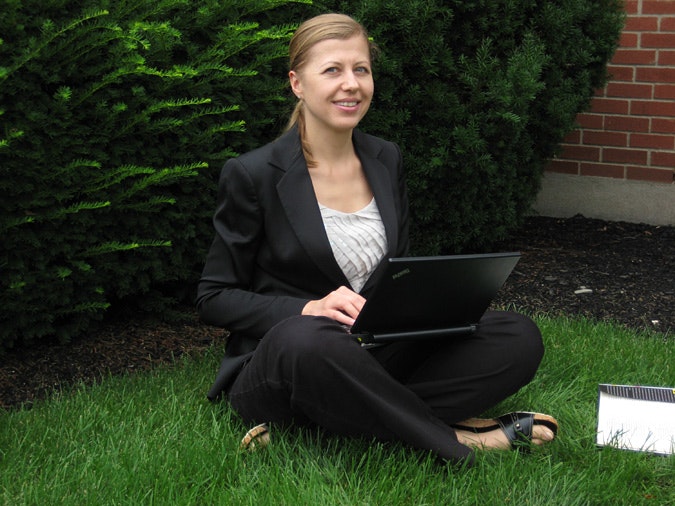Scholar’s Work Is Good Medicine for Moldova
By Zoe Brogden

“Access to essential medicines is a public good,”enthuses Maria Creciun, a PhD student in social policy at Brandeis University and an Open Society Scholarship Programs Doctoral Fellow. Her passion for improving public health and more equitable distribution of medicines to the most disadvantaged sections of society goes beyond the classroom; she also undertook an internship with the Open Society Access to Essential Medicines Initiative in New York this summer.
Adding to her previous internship at Bayer in Germany in 2010, Maria is moving towards increasing her knowledge, both of the marketing strategies of corporate pharmaceutical companies and human rights instruments which can potentially facilitate a right-to-health accountability framework. “As well as contributing to the work of the Access to Essential Medicines Initiative, one of the aims of my internships is to try and narrow the focus of my dissertation topic,” she says.
When reflecting on the current situation of civil society in her native Moldova, Maria highlights several deficiencies, including apathy, a lack of transparency in public decision-making, and a poor level of research. “The problems within the Moldovan health system are complex, with a legacy from the Soviet past compounded by the economic downturns of the 1990s and 2000s. All this prevented Moldova from systematically adopting health care innovations and clinical practices to ensure quality and access to care,” she says.
“While a number of improvements have been made so far, Moldovan national health policies should be concentrated around building a sustainable system reflecting national priorities, starting from capacity building through better medical education, a more extensive system of national health insurance to ensure those with medical conditions do not end up in poverty, improved physical infrastructure, as well as health knowledge within civil society,” Maria adds. “While that requires substantial financial and human resources, making Moldovan civil society more engaged is potentially the major factor in enhancing accountability and responsibility to help Moldova reverse its stagnation.”
Having finished with her qualifying exams in May, Maria is working on her dissertation proposal and teaching a course in research methods and evaluation for graduate students. A demanding load, but a challenge which she clearly relishes. “Looking at health care within a nation reflects what's going on in a society overall,” she says.
Until November 2021, Zoe Brogden was a senior team manager for the Open Society Scholarship Programs.